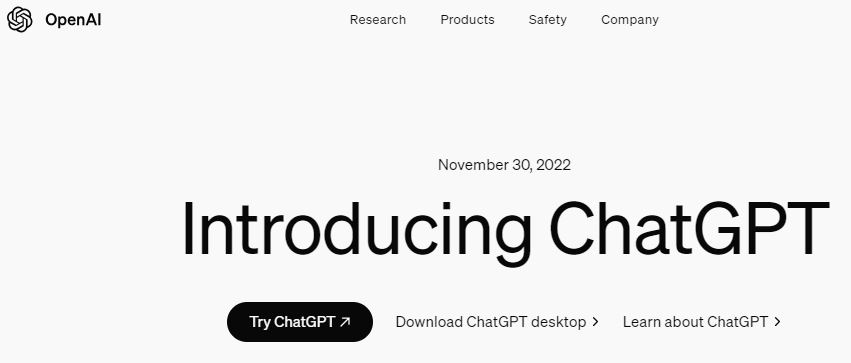With the rise of AI, the essay-writing process has become much more manageable and accessible. Numerous AI tools on the market now cater to a wide range of users, from students to professionals, and anyone aiming to enhance their writing quality and efficiency. In this comprehensive guide, we’ll delve into the ten best AI tools for essay writing. We’ll explore their unique features, strengths, and limitations, providing a detailed comparison to help you find the tool that aligns best with your specific writing needs.

Table of Contents
ToggleWhat Characteristics Define the Best AI for Writing Essays?
The ideal AI tool for writing essays combines functionality, ease of use, and advanced capabilities, streamlining the writing process while improving accuracy and quality. Here are the features that distinguish the best AI essay-writing tools:
1. Natural Language Processing (NLP) Accuracy
- Contextual Understanding: Top-tier AI tools should understand context and nuance, generating coherent, relevant, and contextually precise text. Advanced NLP allows the AI to respond naturally and produce content that flows like human writing.
- Grammar and Syntax Mastery: In addition to generating text, a reliable AI tool maintains grammar and syntax accuracy, essential for creating polished, professional essays.
2. Customization and Flexibility
- Tone and Style Adaptation: The most versatile AI tools allow users to adjust the tone (e.g., formal, casual, persuasive) and style to suit specific essay requirements, making them suitable for varied writing purposes.
- Prompt Responsiveness: Whether you need a full draft, help brainstorming, or assistance expanding an idea, responsive AI adapts to different prompt types, delivering content accordingly.
3. User-Friendly Interface and Workflow Integration
- Intuitive Design: A straightforward, user-friendly interface helps even those with limited tech skills generate content with minimal learning required.
- Integration Options: Integration with popular word processors like Microsoft Word, Google Docs, and web browsers allows users to incorporate AI tools into existing workflows easily.
4. Research and Fact-Checking Capabilities
- Incorporating Factual Data: Some AI tools connect to databases or search engines, gathering factual information—a valuable asset for research-based essays or academic papers.
- Plagiarism Detection: Built-in plagiarism checkers ensure unique, properly attributed content, which is essential in academic writing.
5. Editing, Refining, and Rephrasing Tools
- Grammar and Style Suggestions: Tools that offer grammar, structure, and style refinement, along with word choice and readability suggestions, elevate an essay’s quality.
- Sentence Rephrasing: Advanced rephrasing features help users improve readability by refining sentences for clarity and conciseness.
6. Cost-Effectiveness and Accessibility
- Accessibility Across Devices: Compatibility across mobile, desktop, and browser-based platforms ensures the tool is available whenever needed.
- Free or Affordable Plans: AI tools with free versions or reasonably priced subscriptions are more accessible to students and professionals.
Also Read: 10 Best AI Tools for Audio Editing for 2024
Best AI for Writing Essays
1. ChatGPT by OpenAI

ChatGPT is a robust language model created by OpenAI, known for its conversational style. It can generate text, answer questions, and assist with brainstorming ideas, making it versatile for various writing tasks.
- Key Features: Advanced natural language understanding, customization for different writing styles, user-friendly interface.
- Pros: Handles diverse writing tasks, generates high-quality and coherent text, and supports brainstorming and idea generation.
- Cons: Limited free version access, requires specific prompts for optimal results.
2. Jasper AI
Jasper AI is designed for marketers, content creators, and students. Known for generating engaging, structured content, Jasper AI offers features that can adapt to various content formats.
- Key Features: Pre-made templates for blog posts, essays, and social media content, customizable content tone, long-form editor.
- Pros: Variety of templates, maintains consistent writing tone, research assistance.
- Cons: More expensive than comparable tools, limited advanced customization.
3. Grammarly
Originally a grammar checker, Grammarly now includes AI-driven suggestions to enhance clarity, style, and tone. It’s valuable for anyone needing to improve the quality of their writing.
- Key Features: Real-time grammar, punctuation, and style checks, plagiarism detection, tone adjustment suggestions.
- Pros: Integrates well with various platforms (e.g., Word, Google Docs), excellent for language accuracy and tone, customizable goals for different writing tasks.
- Cons: Limited creative writing generation, higher cost for premium features.
4. Slick Write
Slick Write is a straightforward tool for improving grammar, punctuation, and structure, making it useful for refining essays.
- Key Features: Sentence structure and flow analysis, vocabulary suggestions, style and tone consistency check.
- Pros: Free to use, simple and intuitive interface, useful for language and structure enhancement.
- Cons: Limited in content generation, lacks a comprehensive plagiarism checker.
5. ProWritingAid
ProWritingAid offers detailed analysis and grammar correction, making it ideal for writers and students who need in-depth feedback on their work.
- Key Features: Grammar and style checker, readability and engagement reports, integration with Microsoft Word and Google Docs.
- Pros: Offers in-depth analysis, cost-effective, visual representations of readability and structure.
- Cons: Requires a learning curve for new users, can be slow on large documents.
6. Wordtune

Wordtune focuses on rephrasing and style improvement, making it ideal for users looking to refine their essays.
- Key Features: Sentence rephrasing for conciseness and clarity, tone adjustment, Google Docs and web application integration.
- Pros: Quick and easy rephrasing tool, intuitive interface, free version with essential features.
- Cons: Limited editing options, premium features may be expensive.
7. Writesonic
Writesonic is an adaptable AI writer, capable of creating blog posts, essays, and even ad copy, making it a versatile choice for content creation.
- Key Features: Generates various content formats, includes a plagiarism checker, rephrase and summarize features.
- Pros: Beginner-friendly templates, AI image generator, affordable plans.
- Cons: May produce irrelevant content at times, limited depth control.
8. Copy.ai
Copy.ai offers AI-based writing assistance, making it useful for drafting essays and brainstorming ideas quickly.
- Key Features: Template-based writing, real-time clarity and structure suggestions, customizable tone.
- Pros: Easy to use with prompt-based templates, affordable, suitable for quick drafts and brainstorming.
- Cons: Limited in-depth editing features, may need human input for accuracy.
9. Scribbr
Known for its plagiarism checker and citation tools, Scribbr is valuable for academic essay writing.
- Key Features: Plagiarism detection using Turnitin, citation generator, proofreading, and editing services.
- Pros: High accuracy in plagiarism detection, excellent for academic integrity, thorough editing services.
- Cons: Limited in content generation, paid features are essential.
10. Hypotenuse AI

Hypotenuse AI specializes in producing readable, long-form content, making it suitable for essay writing.
- Key Features: Long-form content generation, integration with research sources, AI summarization.
- Pros: Simple, user-friendly interface, strong focus on readability, ideal for extended essays.
- Cons: Limited customization options, higher price for premium plans.
Best AI for Writing Essays at a Glance
| AI Tool | Key Features | Pros | Cons | Best For |
|---|---|---|---|---|
| ChatGPT | Conversational AI, versatile writing | High-quality text, versatile | Limited access in free version | Versatile writing tasks |
| Jasper AI | Templates, long-form editor | Variety of templates | Expensive | Content marketing, essays |
| Grammarly | Grammar check, tone adjustments | Platform integration, accurate suggestions | Limited creativity | Grammar and style checks |
| Slick Write | Grammar and style checks | Free, intuitive | Lacks generation capability | Language refinement |
| ProWritingAid | Grammar and style reports | In-depth analysis, cost-effective | Learning curve | Detailed analysis |
| Wordtune | Rephrasing, tone adjustment | Quick rephrasing | Limited editing features | Sentence refinement |
| Writesonic | Content generation, templates | Beginner-friendly, affordable | Irrelevant content | Content creation |
| Copy.ai | Writing templates, customization | Easy to use, affordable | Needs human intervention | Drafting and brainstorming |
| Scribbr | Plagiarism checker, citations | Accurate plagiarism detection | Limited generation | Academic writing |
| Hypotenuse AI | Long-form generation, readability | Simple UI, readable content | Limited customization | Long-form essays |

Final Words
Each AI tool offers specific benefits and caters to various writing needs. Whether you’re looking for grammar correction, content generation, or in-depth stylistic analysis, these AI tools can streamline the essay-writing process, save time, and improve the quality of your work. By selecting the tool that best aligns with your requirements, budget, and writing style, you’ll enhance your writing experience and achieve better results.
Interesting Reads
Can You Undelete a WordPress Category?



